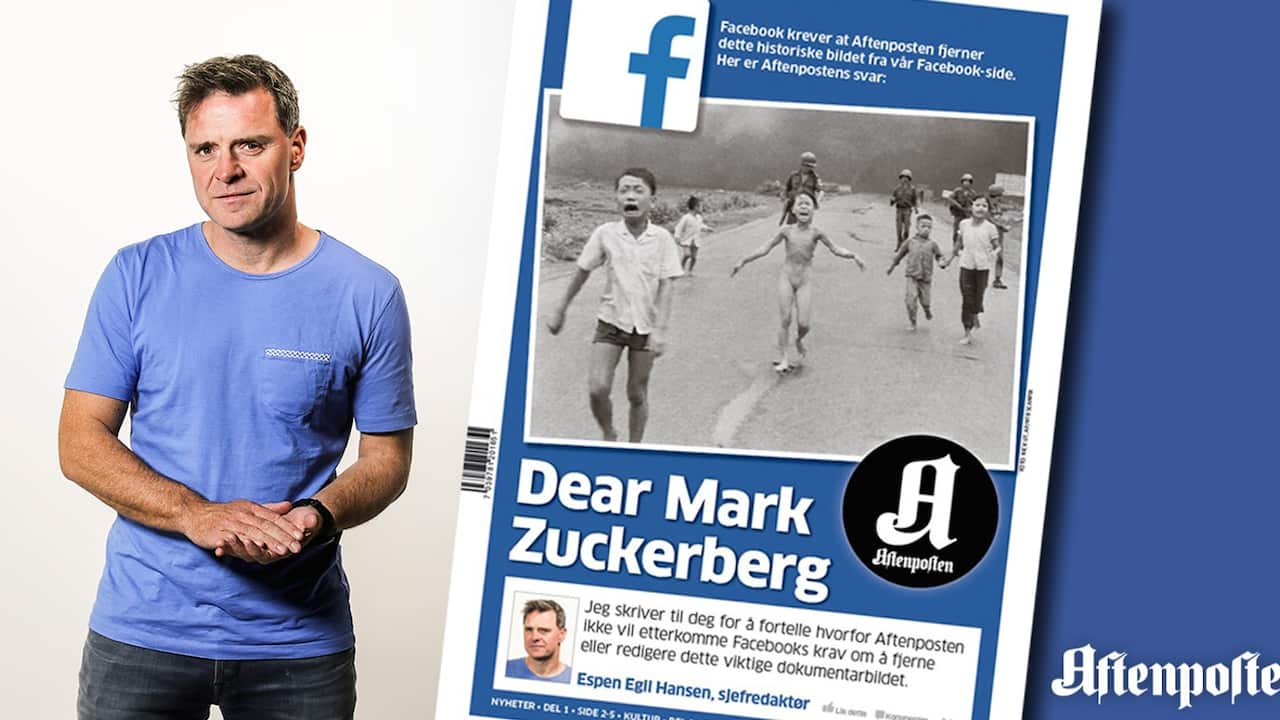Norwegian daily newspaper Aftenposten has entered into the Facebook censorship debate, criticising the social media platform's decision to remove posts that contain nudity even when they are famous war photos.
The paper's editor Espen Egil Hansen has penned an outraged to Mark Zuckerberg where he accuses the Facebook founder of 'abusing his power'.
Media organisations are greatly reliant on sourcing traffic through Facebook posts, but Hansen says Zuckerberg is meddling with the independent editorial of publications who use the site.
"Facebook has become a world-leading platform for spreading information... But, dear Mark, you are the world’s most powerful editor."
The Norwegian paper took up the issue after Norwegian writer Tom Egeland posted the 1972 Vietnam War image of nine-year-old Kim Phúc running on a road after a Napalm attack as part of a series of images that 'changed the history of warfare'.
Facebook deleted that post and the writer was suspended from the site after responding with Kim Phúc's criticism over the image of her being banned.
When the Norwegian paper reported on the ban, they used the 'Napalm Girl' image in the article and on their post. Hansen writes, the paper was contacted by Facebook and asked to 'remove or pixelise' the image and less than 24-hours later the article post with the image were deleted.
Hansen writes, the paper was contacted by Facebook and asked to 'remove or pixelise' the image and less than 24-hours later the article post with the image were deleted.

Espen Egil Hansen, Aftenposten editor. Source: Aftenposten
"Listen, Mark, this is serious. First you create rules that don’t distinguish between child pornography and famous war photographs," Hansen wrote.
"Then you practice these rules without allowing space for good judgement. Finally you even censor criticism against and a discussion about the decision – and you punish the person who dares to voice criticism.
"The media have a responsibility to consider publication in every single case... This right and duty, which all editors in the world have, should not be undermined by algorithms encoded in your office in California."









